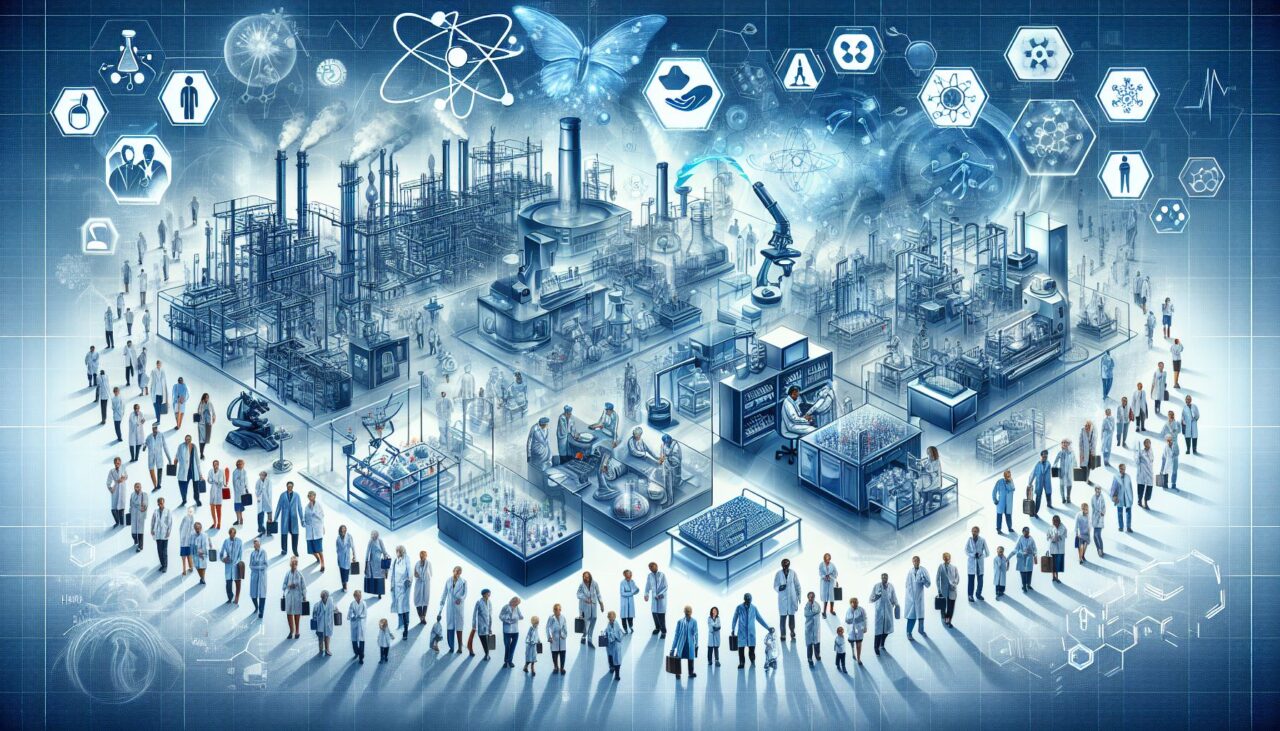The pharmaceutical industry is an integral part of our healthcare system, working tirelessly to develop, manufacture, and distribute crucial medications that help diagnose, prevent, treat, and cure diseases. It is a complex and ever-evolving world, constantly adapting to new scientific discoveries, technological advancements, and regulatory changes. In this blog post, we will explore the various aspects of the pharmaceutical world and its impact on global health.
The Role of Pharmaceuticals in Healthcare
Pharmaceuticals play a vital role in healthcare, providing physicians with the necessary tools to effectively treat patients. From common ailments to life-threatening diseases, medications are designed to alleviate symptoms, target underlying causes, and improve overall well-being. Without pharmaceutical innovation, the medical landscape would significantly regress, leaving millions without access to life-saving treatments.
Research and Development
At the heart of the pharmaceutical industry is research and development (R&D). Pharmaceutical companies invest substantial resources in scientific research to discover new drugs, improve existing treatments, and deepen our understanding of various diseases. R&D is a complex process involving laboratory experiments, clinical trials, and exhaustive testing to ensure safety and efficacy. It is a time-consuming and costly endeavor, often taking years or even decades to bring a new drug to market.
Manufacturing and Quality Control
Once a drug is successfully developed, it must undergo rigorous manufacturing processes to ensure consistent quality and purity. Pharmaceutical manufacturers comply with strict regulations and adhere to Good Manufacturing Practices (GMP) to maintain product integrity. From sourcing of raw materials to final packaging, quality control measures are implemented to minimize the risk of contamination, errors, or adverse effects.
Regulatory Framework and Patient Safety
To safeguard public health, regulatory bodies play a crucial role in the pharmaceutical world. Agencies such as the U.S. Food and Drug Administration (FDA) or the European Medicines Agency (EMA) evaluate new drug applications, review clinical trial data, and enforce safety standards. These regulatory bodies aim to strike a balance between ensuring patient safety and facilitating timely access to new treatments. Stringent regulatory oversight ensures that pharmaceutical companies meet rigorous standards before their products reach the market.
The Impact of Technological Advancements
Technological advancements have revolutionized the pharmaceutical world, making research and development more efficient and precise. Innovative techniques like high-throughput screening, bioinformatics, and artificial intelligence have accelerated the discovery and development of new drugs. Additionally, technologies such as 3D printing and nanotechnology are reshaping drug delivery systems, making treatments more targeted and personalized.
The Future of Pharmaceuticals
The future of the pharmaceutical industry appears promising, with ongoing advancements in personalized medicine, gene therapy, and immunotherapy. Personalized medicine utilizes a patient’s genetic data to tailor treatments, minimizing adverse reactions and increasing effectiveness. Gene therapy aims to replace or modify defective genes to treat or cure genetic diseases. Immunotherapy enhances the body’s immune system to fight against cancer and other diseases. These emerging technologies hold immense potential to transform healthcare and improve patient outcomes.
Conclusion
The pharmaceutical world operates at the intersection of science, technology, and patient care. It is a multifaceted industry driven by a collective goal to improve global health. Through relentless research, stringent regulations, and innovative technologies, the pharmaceutical industry continues to make significant contributions to human well-being. From discovery to manufacturing to distribution, countless individuals work tirelessly to ensure that critical medications are readily available to those in need. The journey of a drug from the lab to the pharmacy shelf is a testament to the dedication and expertise of scientists, healthcare professionals, and regulatory bodies. The pharmaceutical world is ever-evolving, with exciting advancements on the horizon, promising a brighter and healthier future for all.
